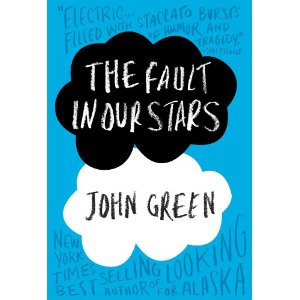I chose this book because it had tons of reviews, although I didn’t read them carefully because sometimes they give away endings. I just skimmed them enough to determine the reviews were good before deciding to read this. There’s nothing worse than getting all comfortable in a blanket with a cup of tea on a crisp fall day and starting a book that is just plain BAD. I am determined to only read GOOD books this fall!
I was not disappointed! I had no idea that the effects of cancer were going to be another theme in this book, as I just read The Fault in Our Stars by John Green, but it had a unique plot and cancer was not the main focus of the book, so it ended up being okay.
The Last Summer of the Death Warriors is about a Mexican boy named Pancho whose father died in an accident and whose sister was recently found dead in a motel room. Pancho wants to get to the bottom of his sister’s death-- he is convinced she was murdered—and he wants revenge. In the midst of this, he is sent to a religious orgphanage he does not want to go to, where he meets D.Q., a skinny, weak white kid who is suffering from cancer. D.Q. immediately lets Pancho know that they are going to be friends, but Pancho doesn’t understand why and he doesn’t really want to be. All he cares about is seeking revenge on his sister’s killer.
Pancho and D.Q.'s relationship ends up growing anyway, as D.Q. grows sicker and Pancho gets closer to his goal of identifying and confronting his sister's killer. They go to Albaqurqe where D.Q. starts a new cancer treatmet and they also spend time with some other characters including little kids, a love interest, a shaman, and D.Q.'s mom who has been out of the pictures for his whole life.
The relationship between Pancho and D.Q. is the focus of the book, including D.Q.'s attempt to make Pancho a "Death Warrior." D.Q. is writing a manifesto in which he describes how a Death Warrior acts, trying to live up to it himself and trying to get Pancho to buy in to it. For example, D.Q. writes that one should become a Death Warrior "...so you can live and die with truth and courage..." (196).
Pancho is definitely a dynamic character, although not in a fake way. He stays true to his slightly cold character throughout the book, although when he warms up in certain parts the reader really understands why because you know what he's thinking.
This book is a great book,especially for boys. The title kind of turned me off (I thought it was going to be about real warriors fighting) but I was satisfied with the plot and the unique characters.
Would interest: boys and girls grades9-12
Good for: static and dynamic characters, symbolism
Themes: friendship, revenge, belonging, natural healing
My Grade: A

